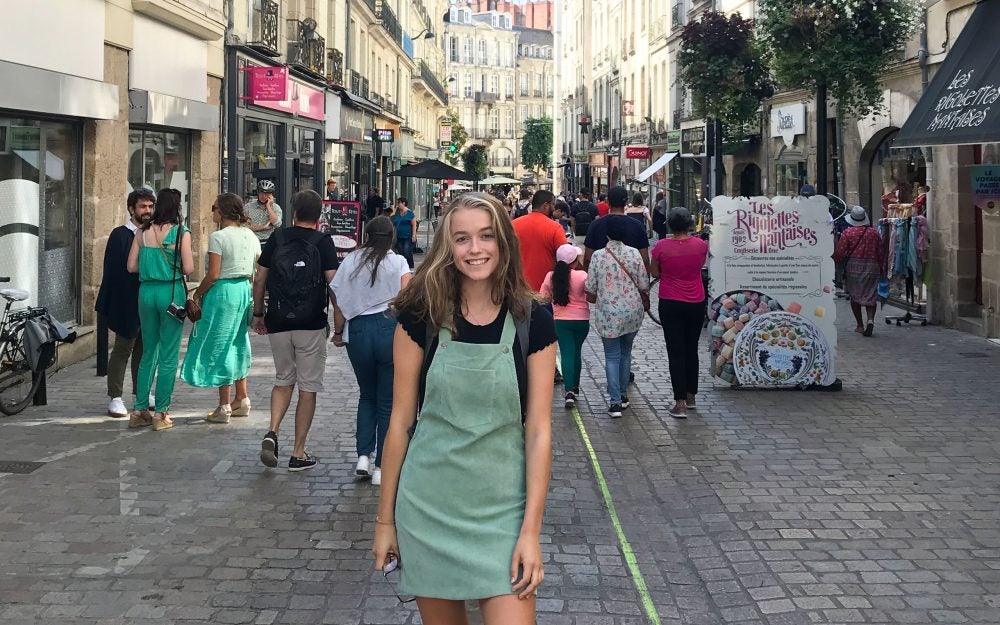
How do you interact with people from another culture? With a different worldview? How do you negotiate with them, work with them, respect their traditions?
How will we confront the global challenges that affect us all, such as climate change, war, and competition for resources?
URI’s International Studies and Diplomacy Program (ISD), addresses these essential questions. The program prepares students to work effectively with people from other cultures, providing them with a broad interdisciplinary foundation in international studies, demonstrated proficiency in a foreign language, and the opportunity to study abroad for a full academic year.
Johanna Leffler ’20 is one of those students. She is spending this year at the Sciences Po, Rennes, in Brittany, France, about two hours from Paris, building fluency in the language while studying French history, the EU, globalism and human rights, and international migration. Leffler believes that being abroad has given her more of an international perspective. “It makes you more well-rounded and it gives you a deeper appreciation of all peoples and cultures,” she says.
URI’s unique approach
The only program of its kind in the Northeast, the ISD offers an experience comparable to elite private institutions. Managed by the departments of Political Science, Economics, and Modern and Classical Languages and Literatures, it is a carefully curated interdisciplinary major for internationally-focused students. And because many Foreign Service jobs require graduate degrees, ISD students may apply for the Five-Year B.A. to M.A. Program in their junior year. Graduates of the five-year program will receive a B.A. in their chosen language and in International Studies in addition to an M.A. in International Relations.
During their first year, students gain a foundation in economics and world politics and they start studying Chinese, French, German, Italian, Spanish or Global Language and Area Studies with a focus in Arabic or Japanese. As students gain mastery in their chosen language, they learn how to communicate effectively across cultures. The curriculum also includes courses in history, anthropology, gender and women’s studies, and communications. Advanced courses cover complex topics such as how women and minority communities are impacted by economic and political policies, how specific cultures are impacted by migration and immigration policy, or how international teams conduct their research during a humanitarian crisis response.
The new program has been popular so far. Ninety percent of ISD students are admitted from out of state and most declare as first-year students. “We are hearing from alumni who wish the program had been in place when they were at URI,” says Marc Hutchison, professor and chair of the Political Science Department.
World-ready careers
ISD student Nik Thommes ’21, who is studying in Germany this year, notes the subtle differences in social science research at German universities compared to the U.S. “The theories and groundwork are similar but the cultural perspective is definitely more left-leaning in Germany,” he says. “And they are more active in their fight against climate change.” Thommes is enrolled in the Five-Year B.A. to M.A. Program, and is considering work in diplomacy, perhaps for the state department.
Graduates of the program may go on to work for an NGO, an international relief organization, or a global corporation, or pursue a career in diplomacy. The strength of the ISD is that it trains students to be globally competent, agile thinkers.
“If you’re just good in foreign language and culture and don’t understand the international organizations that exist, how the global economy works, or why countries behave the way they do in foreign policy, it wouldn’t be enough,” says Brian Krueger, associate dean, of the College of Arts & Sciences, and political science professor. “It’s really the combination of those things that students need.”

